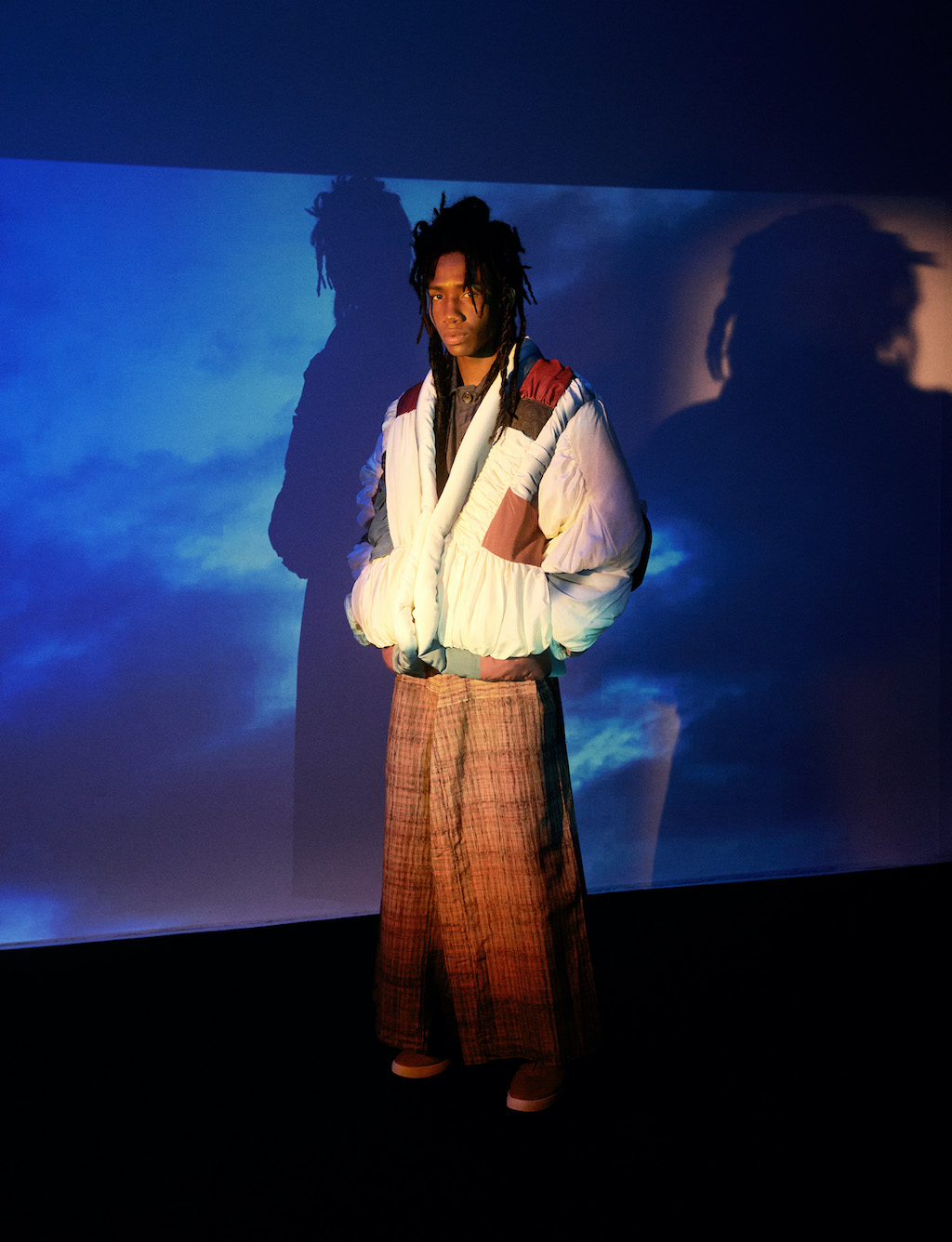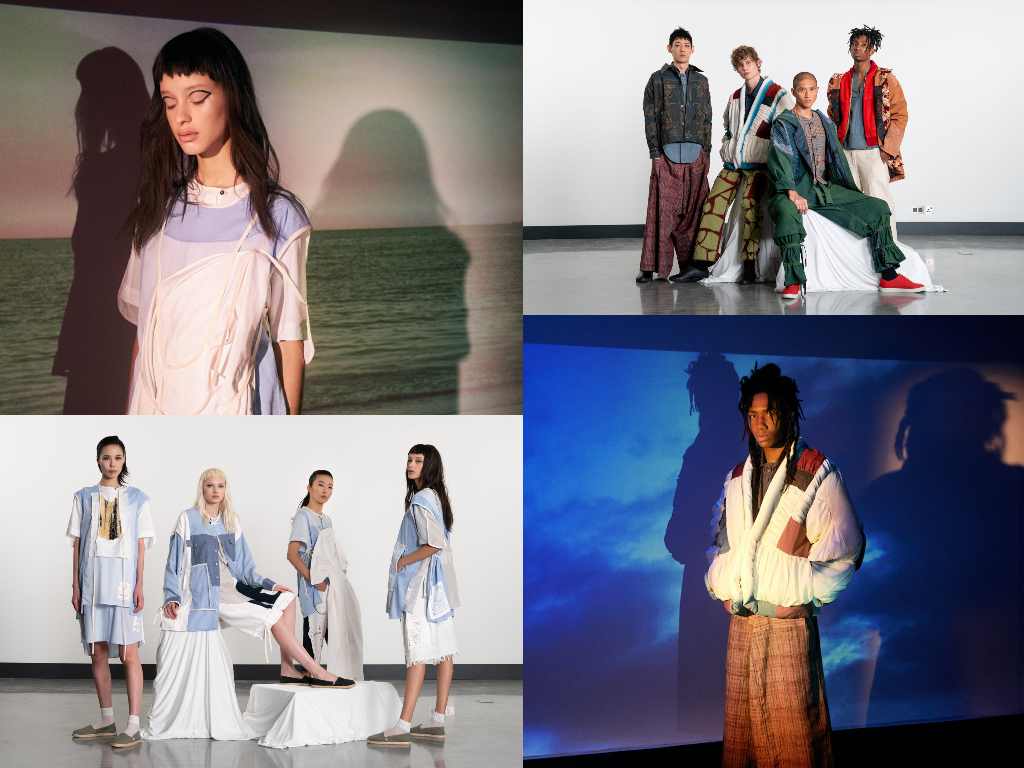5 Mins Read
Environmental charity pioneer Redress, the organisation kickstarting the sustainable fashion movement in Asia over a decade ago, presented the 2020 Redress Design Award Show last night. This year’s event represents Redress’ 10th anniversary cycle, and for the first time in its history, the Grand Final took place virtually to showcase the groundbreaking low-waste collections created by a cohort of talented young sustainable fashion designers.
Organised by Hong Kong-based Redress, the Redress Design Award is the world’s largest sustainable design competition on a mission to educate and inspire young emerging designers and arm them with the tools to drive growth towards circular fashion. This year, for the award’s 10th cycle, ten finalists from around the world presented their stunning upcycled, four-piece fashion collections in a live virtual event.
The ten finalists were shortlisted from hundreds of applications all over the world, advancing through to the semi-final stage with 32 competitors before making it to the Grand Final upon selection by Redress’ international judging panel, comprising some of the most influential names in the industry, including founding publisher of Vogue Hong Kong, Desiree Au, VF Corporation executive VP Kevin Bailey and renowned sustainable fashion designer and co-founder of Fashion Revolution Orsola de Castro.
Read: The 10 finalists shortlisted for Redress Design Award 2020

Over the course of the evening, the passionate designers took to the stage, with notable pieces stealing the show, including Hong Kong-based Grace Lant’s hand-knitted trendy chunky cardigan crafted with repurposed deadstock, sampling yardage and recycled wool sourced from Italian and Hong Kong mills, and Italian Beatrice Bocconi’s zero-waste sustainable workwear apparel made with upcycled canvas and denim scraps and accented with all-natural dyes.
Ultimately, Argentinian native Juliana Garcia Bello who is based in the Netherlands with her HERENCIA collection took home the prize of the womenswear winner this year, with her line of creative reversible garments made with second-hand materials donated from her neighbours in her hometown. As the winner of the womenswear category, Bello will be prized with the career-changing experience of creating a capsule collection with upcycled brand The R Collective.
I create my work on a small scale in my atelier, so having to think about designing and putting my ideas, solutions and systems into a bigger scale was definitely a big challenge for me.
Juliana Garcia Bello, Winner of the Womenswear Prize
Meanwhile, Hanoi, Vietnam-based Ngoc Ha Thu Le with her Slow Boy Archive line won the menswear prize (Redress’ first time awarding this category), which will take the young designer on a partnership with VF Corporation’s Timberland team. Her collection comprised Japanese-style Americana-inspired looks donning zero-waste patchwork, second-hand kimono linings, avocado peel-based dyes and cut-and-sew waste.

Altogether, what the designers presented to the stage was a glimpse into the circular revolution that the fashion industry needs, especially in Asia, home to one of the fastest-growing fashion consumer markets in the world and where over half of global textiles are manufactured. As a whole, the apparel industry is responsible for an astonishing 92 million tonnes of landfill waste annually, on top of huge amounts of water contamination and carbon emissions.
The greening in mainstream fashion is a definite yes, we will see the runway go sustainable or else they will go out of business. No one will put up with these bad practices anymore. Of course, there are many shades within this, but we’re here today talking about radical sustainable fashion, and the future is definitely positive for sustainability.
Christina Dean, Founder & Chair of Redress
At the post-event exclusive Q&A media session led by Hannah Lance, Redress founder and chair Christina Dean, responding to Green Queen’s question about whether sustainable fashion is the only way going forward in the post-coronavirus world, said in plain and simple terms: “Yes. Full stop.”
“It depends what you call sustainable fashion. The greening in mainstream fashion is a definite yes, we will see the runway go sustainable or else they will go out of business. No one will put up with these bad practices anymore. Of course, there are many shades within this, but we’re here today talking about radical sustainable fashion, and the future is definitely positive for sustainability and I would love to see this radical thinking become so mainstream,” Dean added.
Green Queen also heard from womenswear category winner Bello, who shared her experience taking part in the competition and the challenges she faced. “I create my work on a small scale in my atelier, so having to think about designing and putting my ideas, solutions and systems into a bigger scale was definitely a big challenge for me.”

This year, I feel like designers are looking at the bigger picture. They are going beyond design and it’s about envisioning something bigger.
Denise Ho, Brand Creative Officer of The R Collective & Redress Design Award Judge
“I’ve learned so much within these few weeks. I’ve also been speaking so much more English during this time despite it not being my native language, and learning to put into words my thoughts and ideas has been a big part of my learning too,” said Bello.
The judges went on to explain that this year represents a milestone for the competition, with 10 years under its belt and every year, designers showing ever creative designs and passion when it comes to navigating and embracing circularity.
“This year, I feel like designers are looking at the bigger picture,” Denise Ho, one of the panel judges and brand creative officer of The R Collective told Green Queen during the event. “They are going beyond design and it’s about envisioning something bigger. Upcycling is a larger and more complicated process and to have designers work with the problem is so exciting to see as a judge.”
All images courtesy of Redress.




